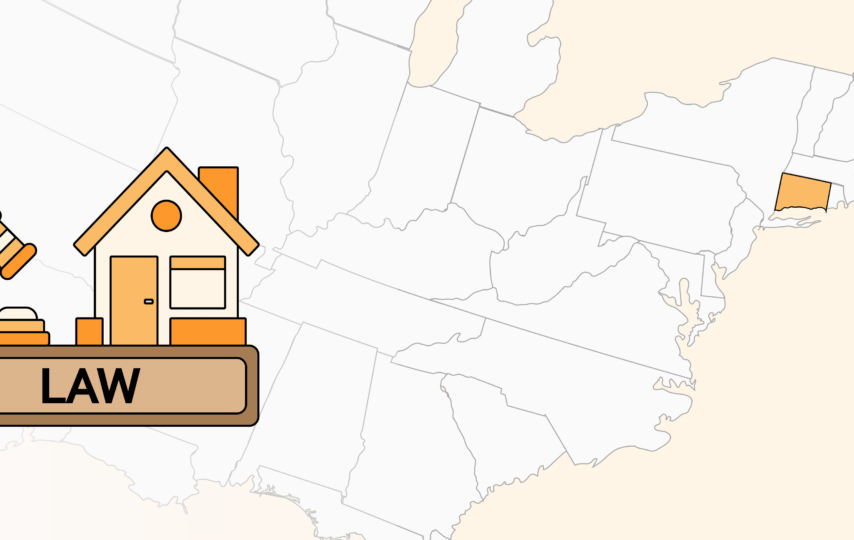Treating all your tenants fairly and with respect should be your number one priority as a landlord. State laws are in place to provide a guideline for you to ensure that you’re doing this.
Connecticut has its own rules and regulations regarding rental properties and how to manage the tenants that live in them. Below are some of the most relevant landlord-tenant laws to know before investing in real estate in Connecticut.
Rent and Fees
Collecting rent and other fees should be one of your main considerations as a landlord. In Connecticut, there are a few state laws regarding how to do so.
Rent should be paid at the beginning of each month unless otherwise stated in the rental agreement. Also, if the tenant pays in cash, the landlord is legally required to provide a receipt. Landlords are prohibited from only allowing electronic funds transfer as the sole method of payment for security deposits or rent, so accepting either cash or check is a requirement.
Rental application fees and late fees are not regulated, and rent control is banned in Connecticut. Additionally, the statewide grace period is nine days, meaning that landlords must wait at least nine days after rent is due before applying late fees or sending an eviction notice. Connecticut does uphold the repair and deduct remedy. Tenants can use this remedy when a landlord fails to provide essential services like hot water, electricity, gas, or other necessities. The tenant can either deduct the reasonable cost of that service from rent or find substitute housing for the duration of the landlord’s neglect. If the landlord is purposefully not supplying that service, the tenant can terminate the lease and be reimbursed for two months’ rent or double the actual damages, whichever is greater.
Required Disclosures
Most states have requirements for what information landlords must convey to their tenants upon move-in.
In Connecticut, landlords must provide a written security deposit receipt, a notice as to whether the unit is located in a common interest community, and a notice regarding the existence of a required fire sprinkler system (if there is one). Landlords must also tell the tenant if the unit is currently infested with bedbugs and may not offer that unit up for rent.If the tenant requests it, landlords must also disclose the last time that unit was inspected and found bed bug free.
Evictions
Connecticut eviction lawsdictate three different kinds of notices that landlords may post, as well as the respective periods to wait before moving forward with evicting a tenant.
If a tenant has unpaid rent or other fees, they have three days after you post a rent demand notice to either pay the amount owed or vacate the premises.
For a lease violation, you must wait 15 days after posting their notice to allow them to remedy the violation or make arrangements to move out.
Finally, if the tenant is convicted of using the rental property for illegal activity, they have fifteen days to leave the property. Landlords are not required to post a notice or allow the tenant to fix their violation before filing for eviction.
Besides notices that you give to your tenants, it’s also possible that your tenant could give you a notice that they will vacate the property due to domestic violence victims’ special protections under Connecticut landlord tenant laws. If they fear imminent harm to either them or their dependents, they may give 30 days’ written notice and terminate their lease. You may not penalize them for doing so.
Security Deposits
Landlords in Connecticut are required to pay tenants the interest that has accrued on their security deposits. Also, landlords must keep those security deposits in a separate escrow accountmaintained or established in a financial institution.
Landlords must return the tenant’s deposit within 30 days, or 15 days after receiving notification of the tenant’s forwarding address. When returning the deposit, the landlord must provide a written statement itemizing any damages, unpaid rent, or other losses that the landlord deducted for, along with the amount of each deduction.
Lastly, the Connecticut security depositlimit for those under the age of 62 is two months’ rent, but the limit is only one month’s rent for those older than 62.
Conclusion
If Connecticut is the state where you’ve chosen to invest in rental property, use this article as a guide to kickstart your independent research on state laws. It’s crucial that you remainup to date on these important issues, since not complying with them can be costly.








